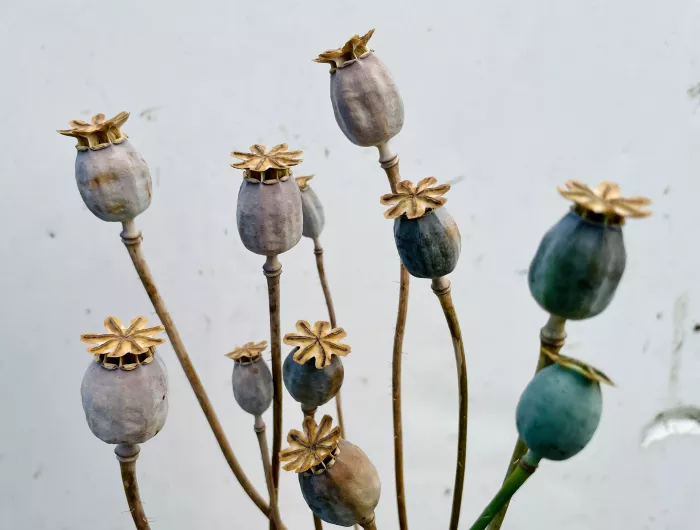Contaminated Poppy Seeds: FDA

Tasha Kostyuk - Unsplash.com.
On May 8, 2024, CSPI sued FDA to compel a decision on a maximum limit of opiate alkaloid contamination of poppy seeds. CSPI, represented by CSPI’s litigation department, alleged that FDA’s failure to act on the more than 3-year-old petition seeking to protect consumers from contaminated poppy seeds violates the Administrative Procedure Act.
Contaminated poppy seeds
Opiate alkaloids, also known as opiates, such as morphine and codeine, are an essential pharmaceutical tool in pain management, but their use can lead to a variety of health problems, including overdose resulting in serious injury or death.
Both opiates and poppy seeds originate naturally from the opium poppy plant. The seeds themselves contain no or negligible levels of opiates, but they can be contaminated with opiates without adequate processing.
Not all manufacturers properly process their seeds, however, and some sellers even market poppy seeds using terms such as “unwashed” to convey that they have high levels of opiates to consumers.
The importance of an opiate alkaloid limit
Consumers may purchase contaminated poppy seeds unwittingly or intentionally for intoxication or claimed health benefits. Some may use these seeds for the purpose of brewing poppy seed tea, which increases the extraction of opiates from the seeds.
In the United States, there have been hundreds of exposure calls to poison control centers associated with unintentionally consuming contaminated poppy seeds as well as adverse employment and parental custody consequences from positive drug test results.
Jamie Silakowski, for example, consented to a drug test prior to giving birth to her son in 2018 and tested positive for morphine. Although Ms. Silakowski had not used opioids during her pregnancy and her baby tested negative, a Child Protective Services case was opened by the hospital, initially preventing her from leaving the hospital with her son. After receiving the positive test results, Ms. Silakowski recalled that she had eaten lemon poppy seed bread before heading to the hospital. As a result of her positive test, Child Protective Services made house visits, interviewed Ms. Silakowski’s two daughters, and visited their school. Ms. Silakowski also underwent drug counseling and testing, paying for it all herself.
Moreover, there have been numerous serious adverse events associated with intentionally consuming contaminated poppy seeds, including at least 19 fatalities and 20 non-fatal overdoses.
For example, Stephen Hacala passed away in 2016 at the age of 24 from morphine intoxication from drinking poppy seed tea. Prior to Stephen’s death, he ordered a five-pound bag of poppy seeds online, rinsed them with water, and ingested the rinse. It appears that Stephen was not aware that the seeds’ coats were contaminated with a lethal amount of opiates. Stephen had told his mother a few weeks before his death that he was having trouble with insomnia and anxiety. Numerous online websites had promoted poppy seed tea as a natural remedy for these and other health issues.
An opiate alkaloid limit is necessary to help prevent future injuries, deaths, and other adverse consequences from contaminated seeds.
The petition and the response
In 2021, CSPI, six families impacted by contaminated poppy seeds, and two medical experts, submitted a petition to FDA that requested the agency to establish a safe threshold for opiate contamination in poppy seeds. The Petition urged the FDA to draw a clear and unambiguous line between seeds that are safe for use in food and those that are dangerously contaminated.
The Petition has garnered significant public support, including 3,288 comments from consumers who responded to CSPI’s call to action. The Petition also received support from the State of Arkansas, three U.S. Senators, and the House Appropriations Committee.
More, the Attorneys General of 13 states signed a letter of support for a proposed law, the Stephen Hacala Poppy Seed Safety Act, that directs FDA to set limits on opioid contamination in poppy seeds. And, in 2021, the European Union enacted a regulation setting a maximum limit of opiates in poppy seeds and products derived from poppy seeds.
Despite the urgent public need, the overwhelming public support, and the adoption of a poppy seed contamination threshold by the European Union, FDA had not provided a substantive response to the Petition in over three years.
The lawsuit
After years of inactivity on the petition, we sued FDA to force the agency to respond to our Petition. Specifically, we argued FDA violated the Administrative Procedure Act by not responding to the Petition within a reasonable time. The lawsuit was filed in the United States District Court for the District of Columbia.
In response to the lawsuit, in July 2024, the FDA agreed to issue a final decision on the Petition by February 28, 2025, and proposed that the parties seek to stay the lawsuit pending the issuance of this final decision. On July 15, 2024, the parties filed a joint motion seeking a stay of the case until February 28, 2025, or the date when the final decision is issued, whichever is sooner. The same day, the court entered a Minute Order, staying the case as the parties requested.
On January 14, 2025, FDA denied the Petition, citing a lack of information and resources as the reasons for the denial. Despite FDA’s stated reasons for denial, the side effects of opiates are already well understood; in fact, in 2021, the European Union found the available scientific information adequate to establish safe limits for opiate contamination in poppy seeds and has issued a guidance advising the food industry on best practices to reduce contamination. The same day, the court entered a Minute Order, staying the case as the parties requested.
On January 28, 2025, given FDA’s final decision on the Petition, the Parties filed a Stipulation to Voluntarily Dismiss the Complaint without Prejudice. The same day, the court entered a Minute Order dismissing the case without prejudice.

